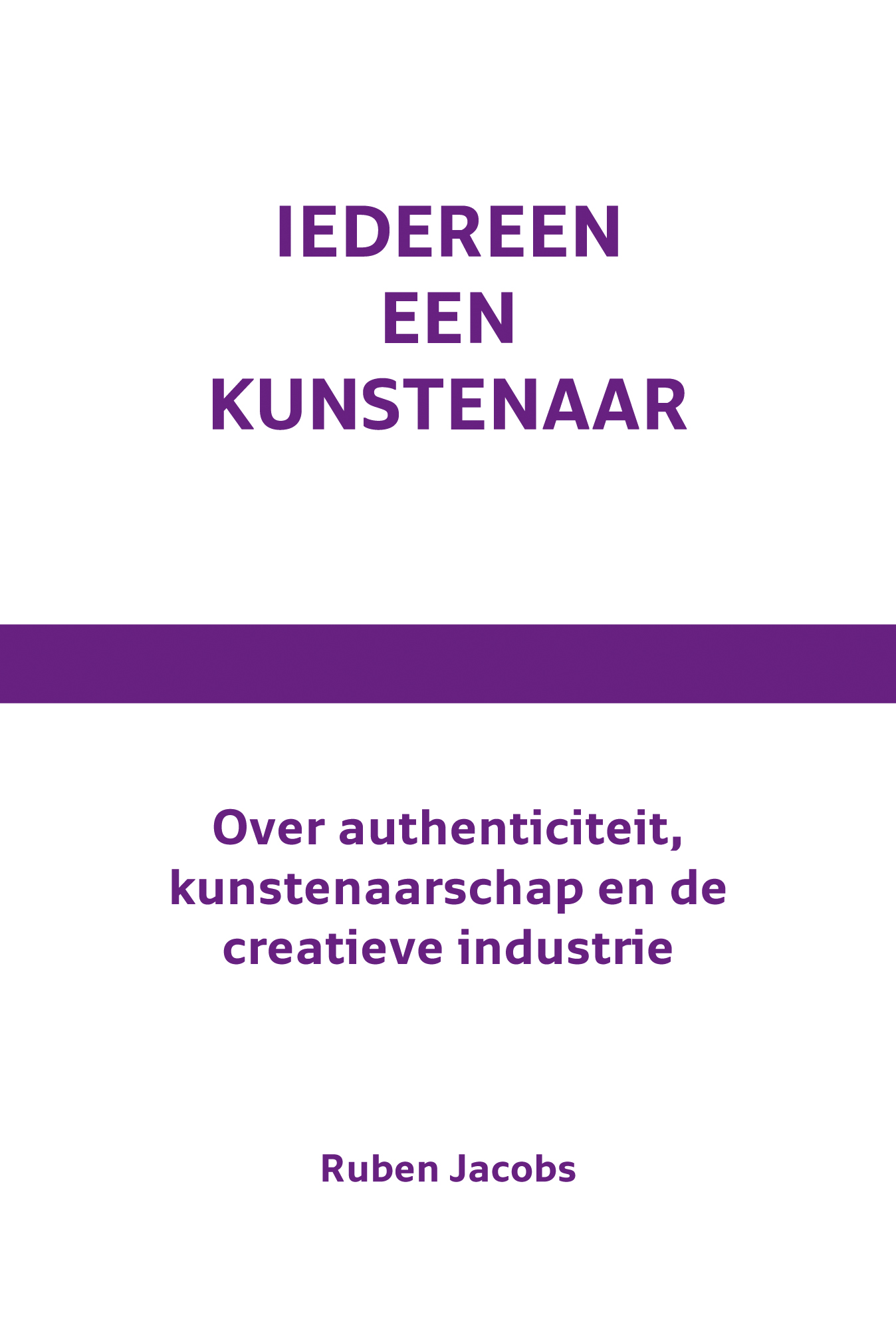
In Iedereen een Kunstenaar (Everybody an Artist), Ruben Jacobs takes a look at the history of the idea of authenticity, tracing it all the way back to Rousseau’s Romanticism. The reason for his exploration is the seemingly paradoxical incorporation of creativity and authenticity in capitalism in recent years. That the creative industries are celebrated as the fastest growing sector in many Western countries, and that with it expressive autonomy has become a value in professions far beyond the traditionally creative ones, poses a problem for the marginal character (i.e. the artist seen as located at the fringes of society) and critical function creativity used to have.
How can it be that efficiency – a central value of capitalism – has embraced the unicity and experimentation that are associated with creativity? And how can it be that authenticity has become such a hot commodity that we are easily fooled by its outward characteristics? Here, Jacobs gives the example of a artisan sweetshop in the centre of Amsterdam that produces individualized sweets as you wait. We would indeed gladly pay a bit more and wait a bit longer as we watch the craftsman provide us with bag of tiny, personalized and edible almost-artworks. What is not apparent in the shop however, is that this is not a one-off, individual exploration of creativity. The shop is in fact part of a franchise that has locations in Tokyo, New York, Barcelona, Seoul…
Yes, authenticity has become a commodity. Creativity used for economic gain breeds constant innovation and constantly changing trends. In this way, creativity in the marketplace drives consumption. The pressure to be, and to continually become our authentic selves amid the excessive possibilities leads to overconsumption, stress, self-exploitation and depressions. But how did we get here? Jacobs reminds us again that, in fact, this culture of authenticity has been with us for a long time. For example, the values of self-exploration and individuality of counterculture of the sixties have now been encapsulated by the business mentality of modern capitalism. But, Jacobs asks, when authenticity becomes part of the commercial production process, how do artists set themselves apart?
Although Iedereen een Kunstenaar is an interesting contemplation on the changing value of authenticity as it got de-marginalized by the creative industries, I can’t help but wonder what Jacobs would find if he would look more thoroughly into what is almost an afterthought to his essay. Here, Jacobs briefly points to an artistic move away from the traditional who-am-I contemplation to the more socially concerned where-am-I and with-whom-am-I questions. The sociological consciousness evident in the contemporary community art projects that Jacobs presents, break with the search for individual authenticity in favor of shared experiences. The question is, what could the critical value of social, community art be in reaction to the capitalist engulfment that pulled the authentic into the economic sphere?


